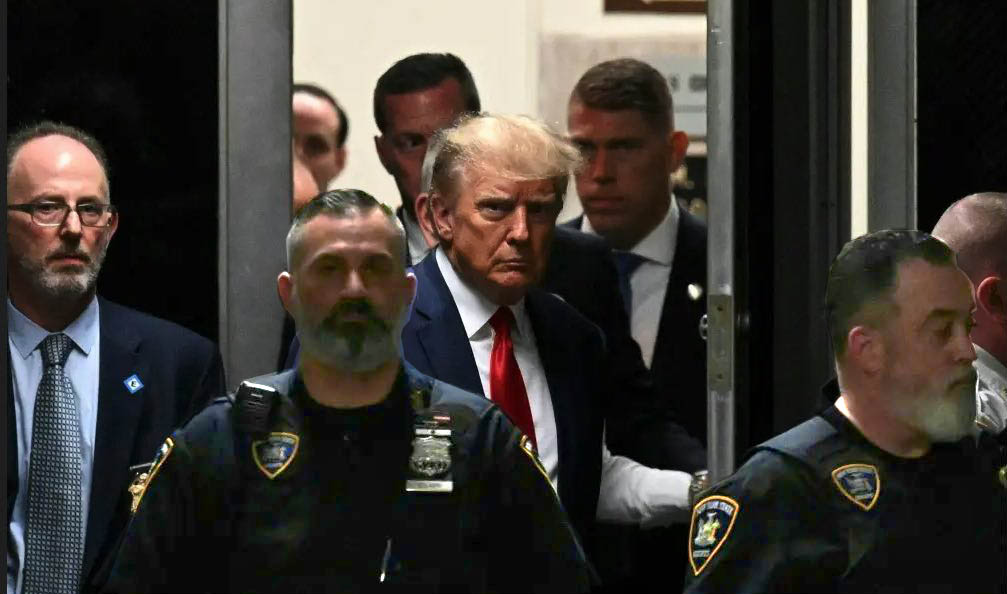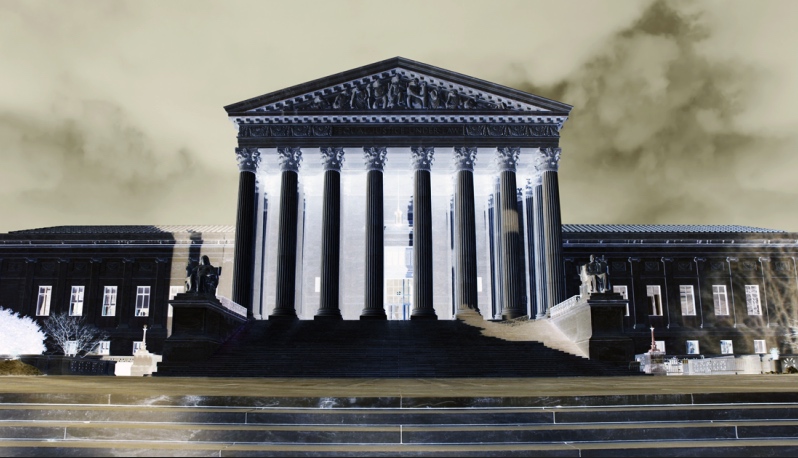I don’t know any Secret Service agents, do you? So I wonder: Are Trump’s protectors scratching their heads here, or are they constipated by commitment, courage, and back-up plans?
On the drive over from Trump Tower, were any lost in the mind-expansion of checking corners for blind spots vs. bail bondsmen?
During the arraignment itself, in that crowded corridor and beyond, was a kaleidoscope of Law & Order characters among the jailers, journalists, U.S. Marshals, FBI, Trump staffers, lawyers, indicted officeholders, real estate groupies, and celebrity gossipers. So many doors, so many suits and ties! How were they able to tell the cops from the crooks or the Bozo’s from the Serpicos?
What did their earpieces confirm, that Agent Larry had just cracked, stripping off his suit like a Chippendale to sing atop one of the bulletproof Escalades?

And all that standing around time! Were agents eavesdropping on slouchy beat cops, lipreading for lunch ideas? Did Hernandez show up sportin’ floods again? Best thousand-yard stare anyone? Was Trump’s close knit group of operatives ostracized by ordinary officers?
Between the badges, body armor, and batons, who coveted whose utility belts? Was there insecurity among the tactically secure? How were female personnel able to withstand this gravity crushing, time-bending black hole of mansplaining?
What sabotaged the straightfaced? In this patriotastic vortex of professional protectors, how did the jokers keep from messing with their workmates? Who elbowed their neighbor when the Lieutenant gave in and scratched his balls? Who sneezed when the former President walked by? Who wondered if their, a-hem, secret “service” smelled as badly as they feared?

Were there convos on contradictions among Trump’s bullet-catchers? Would any admit to being curious about consequences for the rich and well-connected?
As each who swore an oath to “protect and defend” stood by their professional honor and obligations, how many feared an impending end to what inspired their pledge?
Finally, with all that heavyweight allegiance to law and order, what were their excuses for any lack of curiosity?
All images:

..




